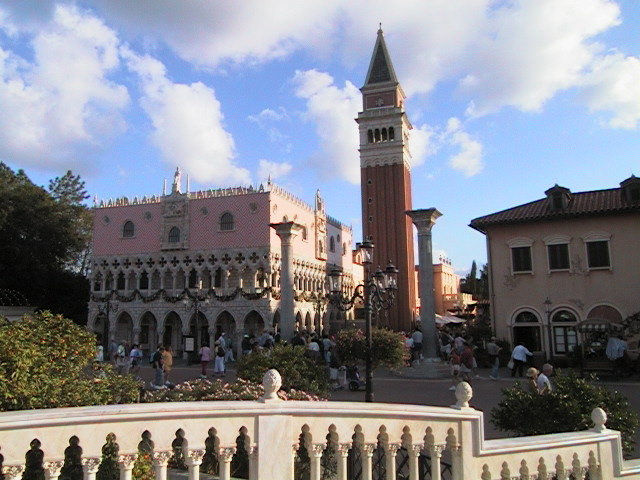I really enjoyed reading this post and found the real world examples given by Mr.Rufo exceptionally helpful. For my post I want to talk about his discussion of the simulacrum, simulation and the hyperreal. A simulacrum mimics a simulation, however there is quite a distinctive difference. A simulacra is a copy without any real model. The example that Ken Rufo gives is the World Showcase in Disney's Epcot. Each nation is not actually a simulation of the nation. "They are so fake that they aren't actually copying anything." He says that the culture of the simulation does not allow us to discover the actual real on our own. Simulacra make things real and we are in effect, blinded from reality by these simulacra.
The hyperreal refers to forming our reality through a simulation of the reality. Ken Rufo gives the example of going to a national park and trying to imitate the famous pictures that we have all seem of these places. Our experience and knowledge of a place is experienced through simulations that we have previously experienced. This is the same as someone traveling to Pisa and taking the picture holding up the Leaning Tower. The Leaning Tower of Pisa is experienced for thousands of people a year take this same picture, because they have seen hundreds just like it before. They have this experience of the tower through all of the other pictures that they have seen, their "reality is filtered through a simulation of the reality."
I find that these ideas are seen every day in our lives. We experience things in the hyperreal everyday. We do something because we have seen what others have done before us. We travel out of travel guides, experience places through the simulated lens that Fromer provides us with. We take the "famous" pictures and partake in the cliche experiences.. simply because they are cliche. Our realities are formed by these cliches.
I would like to say thank you again to Ken Rufo. I hope that I did not too poorly butcher my explanations and thoughts on your post.

*Disney's "Italy"
6 comments:
Intersting post! I have to agree with you that Disney tries to lure all tourists in by trying to show you what these other countries are like - how their cultures are, yet if you actually look at it, that simulation is nothing at all what goes on in "reality." its like what Rufo says, "its all fake." It does make us look at other things which we have accepted as a supposed real. For example, emotions on television. Do we react the way we do because that is how we've seen people/actors react in similar situations on TV? Or is it how we react due to our human nature kicking in?
Great post! While I was reading about it I wonder what our experiences would be like if we did experience them in the hyperreal? For instance, if we went to Italy and did not take a travel guide with us and go to all the famous spots the guide tells us we should see, would we be as satisfied? Wouldn't we feel like something was missing from our trip if we did not see a famous landmark? I would definitely be dissatisfied if I went to Venice and did not ride a gondola, or went to Rome and did not see the Trevi Fountain or the coloseum.
Good post. When you talked about Disney I also thought about the Las Vegas because they do a similar thing with Paris. They have their own little Paris in Las Vegas.
Interesting ideas! This whole notion that we develop our experiences through that which they are not is a rather complex and thought provoking idea. I found it especially interesting when you spoke about Italy and how often we experience Italy through the pictures we see of people holding up the Leaning Tower of Pisa, etc. Related to this idea I think that in many cases our experiences of particular things and places are often formed from experiences we have not actually had ourselves but from the experiences of others. In many ways it seems this is how we learn much of what we know throughout life. Going back to the Epcot example...many of us have never been to the various countries throughout Epcot, yet we have seen particular images associated with them or we know traditional cuisine within the area and these experiences in many ways serve as a means for our understanding of these particular places. It is as though we have traveled there without actually going.
I like your post. I think your examples of simulacrum and the hyperreal are effectual, because they emphasize the fact that there are so many copies of the real, eventually it is hard to identify exactly what the real is. I liked your example of the Leaning Tower of Pisa and how everyone experiences it through photographs, before actually seeing it, therefore when they eventually experience it, the Leaning Tower of Pisa is viewed in association with the previously seen copies. I thought this was an exceptionally easy way to understand the concept of the hyperreal.
That was a great post. I also thought the disney example was great. BEing a big Disney fan I had never thought about the fact that Epcot is all a HyperReal. I really looked at Disney in a new way!
Post a Comment